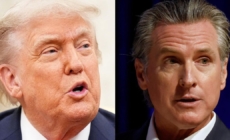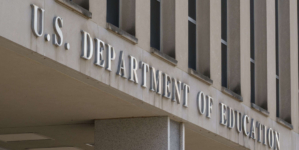-
They said she took her own life. But her mom said it didn’t add up. - 11 mins ago
-
NY Giants Free Agent Target Will Meet With NFC Team - 17 mins ago
-
California Gov. Gavin Newsom is floating a federal tax boycott. Here’s what to know. - 23 mins ago
-
Judge dismisses Justin Baldoni’s countersuit against Blake Lively, Ryan Reynolds - 28 mins ago
-
Aaron Rodgers ‘not as interesting as he used to be’, Is he still an elite QB? | The Herd - 39 mins ago
-
Man lured gay, Jewish teen on app, then stabbed him 28 times. - 53 mins ago
-
Student Loans: Borrowers See Balances Surge Despite Forbearance Promise - 56 mins ago
-
Chipotle set to release first new dip, called Adobo Ranch, in 5 years - about 1 hour ago
-
Did the Steelers get a good deal for Aaron Rodgers? } Breakfast Ball - about 1 hour ago
-
Celebrities React to LA Riots - 2 hours ago
Trump’s travel ban on 12 countries takes effect today
Nationals of the following 12 countries will be blocked from entering the United States: Afghanistan, Chad, Equatorial Guinea, Eritrea, Haiti, Iran, Libya, Myanmar, the Republic of Congo, Somalia, Sudan and Yemen.
In addition, nationals of seven other countries will be barred from coming into the United States permanently or under several visa programs: Burundi, Cuba, Laos, Sierra Leone, Togo, Turkmenistan and Venezuela.
The executive order goes into effect at 12:01 am ET.
Addressing reporters Thursday at the White House alongside German Chancellor Friedrich Merz, Trump said he implemented the new ban now because “it can’t come soon enough.”
“Frankly, we want to keep bad people out of our country,” he said.
President Joe Biden reversed a similar policy in Trump’s first term, which barred foreigners from six Muslim-majority countries from entering the country.
On the campaign trail, Trump promised he would revive the ban.
In a video posted Wednesday on YouTube, Trump cited the attack in Boulder, Colorado, as justification for renewing the ban.
Are there any exceptions?
Yes. The ban will not affect nationals who are already lawful permanent residents of the United States. In other words, the proclamation will not apply to nationals from the list of banned countries who have green cards or who are living in the United States with visas.
It will also not affect nationals of the banned countries who have citizenship in second countries and are entering the United States with passports from unrestricted countries.
Other exemptions include Afghans who helped the U.S. government during the war in Afghanistan, ethnic and religious minorities facing persecution in Iran, athletes from banned countries who are entering the United States for the World Cup or the Olympics and children who are being adopted.
Source link































